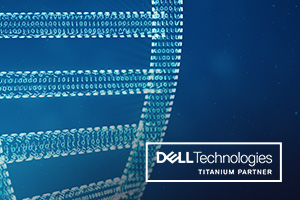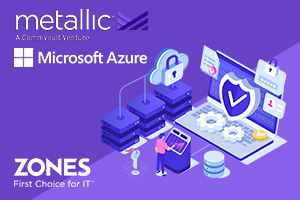Grow as your business requires, without fear of technology limitations
Dell Compellent Storage For years, storage architectures have coupled data to hardware in complex and costly arrangements. These legacy systems...
2 min read
![]() Zones
:
Jul 23, 2020 5:00:00 AM
Zones
:
Jul 23, 2020 5:00:00 AM

The healthcare sector is facing immense challenges in this day and age. For starters, the population is aging very rapidly, with a large generation of Americans simultaneously reaching old age and requiring more robust care. On top of that, care delivery best practices are constantly evolving, and compliance continues to be a highly complex area. And all of that is before you even factor in a global pandemic.
Add it all up, and one thing becomes very clear – it’s difficult for any health organization today to stay afloat without a serious investment in data center transformation.
The amount of data you need to manage to effectively run a health organization in 2020 is truly staggering. According to research from Dell EMC, one great example is Miami Children’s Hospital, which has more than a petabyte of total storage in its data center – that’s 1 million gigabytes. The Northern and Eastern Ontario Diagnostic Imaging Network, which archives medical images for a region of Canada, has about 9 million images in its repository and is adding 2.5 million more per year – over 100 terabytes of annual growth. Traditional data storage systems simply aren’t equipped to keep up with this volume of data.
So what do you do? Some organizations opt for a group of large dedicated storage centers, sorting different types of data into each one – but this can lead to troubling storage silos, which inhibit data sharing across departments and increase management complexity. Not only that, but this silo problem tends to lead to reduced utilization rates, bringing about inefficient work processes and bloated costs. They also make it more difficult to foster collaboration in the workplace, as not everyone has the instant access to the data they need to work together.
Dell EMC is committed to helping health organizations overcome these challenges with high-tech solutions. For example, EMC Isilon represents a network-attached storage (NAS) system that can hold over 20 petabytes of health data and deliver it to users at high speeds. It’s immensely scalable, too, as users can plug new storage into the server rack when necessary. Solutions like this have become key components across the healthcare IT ecosystem, and they’ve helped organizations turn their data from a chore into a genuine strategic asset.
At Zones, we pride ourselves on our ability to work with Dell and help healthcare clients improve their data management. When you work with us, we’ll implement a solution that meets the specific needs of your business – whether that means an on-prem solution, a cloud platform, or some combination of the two. Our team of dedicated data center specialists maintain expert-level certifications, and they come to the table with a customer-first approach that is sure to get results.
One area where we specialize at Zones is in Data Center Transformation. We understand that organizations must be dynamic with their data to stay viable in 2020, and we strive to guide clients through the digital transformation process and help them keep pace. And thanks to our close partner relationships with world-class OEMs – like Dell EMC – we have all the necessary connections to get you the IT solutions you require.
Interested in moving forward? Connect with us and determine your next steps with a Data Management Assessment.


Dell Compellent Storage For years, storage architectures have coupled data to hardware in complex and costly arrangements. These legacy systems...

Businesses have been moving quickly over the last year to adopt a largely remote approach to doing work. This has brought a significant period of...

Corporate IT leaders have always had at least one eye on data center transformation. When you have a constant focus on streamlining the way you...